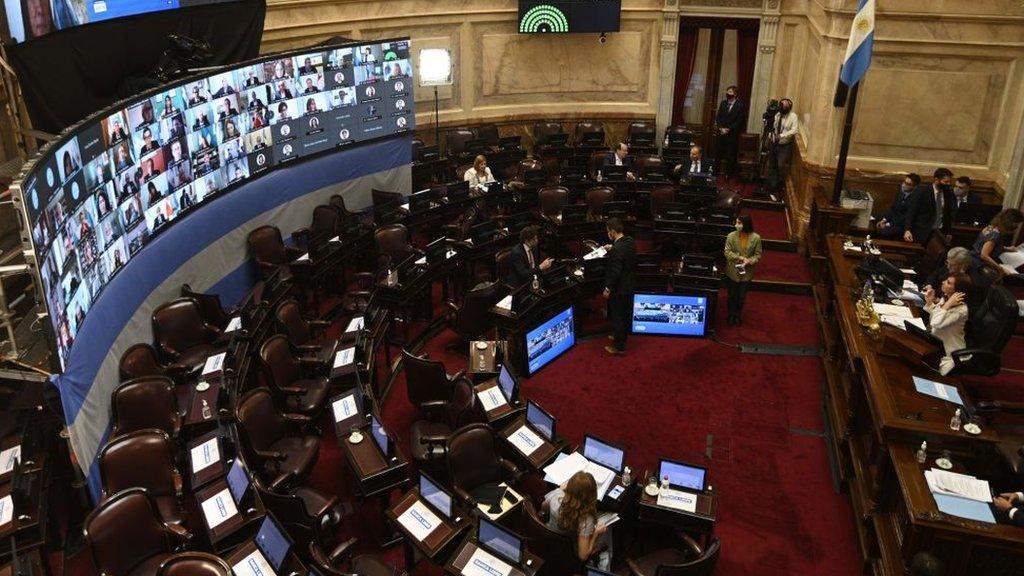'Wealth increase of 10 men during pandemic could buy vaccines for all'
- Published
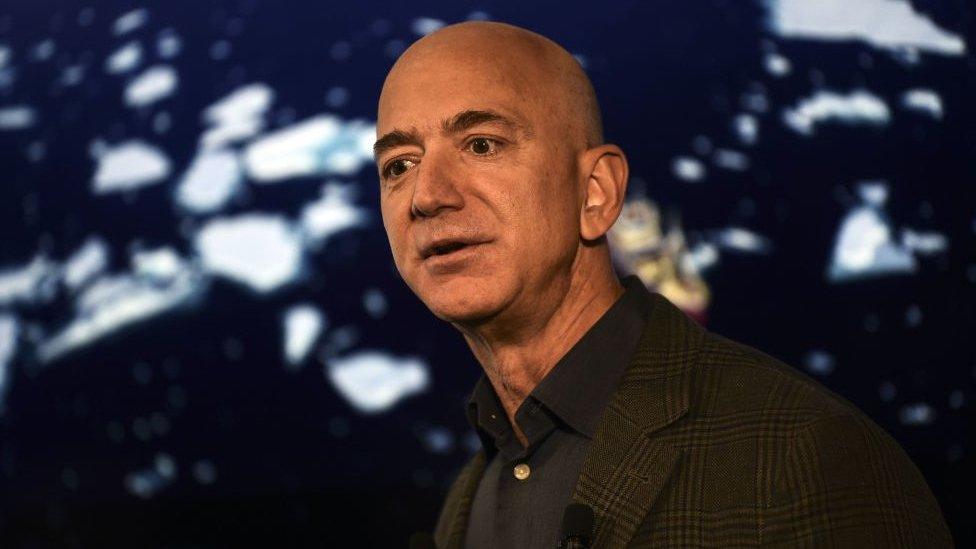
Jeff Bezos could have given every Amazon employee a $105,000 bonus with the money earned since March, claims Oxfam
The combined wealth of the world's 10 richest men rose by $540bn (£400bn) during the pandemic, according to Oxfam.
The charity claims this amount would be enough to prevent the world from falling into poverty because of the virus, and pay for vaccines for all.
The organisation is urging governments to consider taxes on the super-rich.
Oxfam's report, external comes as global leaders gather virtually for the World Economic Forum's "Davos Dialogue" meeting.
In December 2020, the total wealth of billionaires worldwide hit $11.95tn - equivalent to the recovery spending of all the G20 governments put together, according to the charity.
The 10 richest people, whose fortunes rose by $540bn since March 2020, include Amazon founder Jeff Bezos, Tesla founder Elon Musk and Facebook founder Mark Zuckerberg.
Oxfam claims that the billionaires' fortunes rose due to rebounding stock markets and a "rigged economy", causing rising inequality during the "worst economic downturn in a century".


Many tech giants saw sales - and share prices - rise in 2020, as lockdowns led to a jump in demand for digital services.
This inflated the wealth of men like Mr Bezos, whose giant fortunes are driven by the value of holdings such as property and the shares they own, rather than wages.
However, "wealth" does not equal income. Wealth estimates refer to the net worth of an individual, including their money, the value of their assets and also the "notional" value of the shares they hold.
A rise in share prices pertains to the perceived net worth of a company as a whole, rather than the shareholders themselves.
Living in poverty
The report said that Mr Bezos's worth had climbed so much between March-September 2020 that he could have given all 876,000 Amazon employees a $105,000 bonus and still have been as wealthy as he was before the pandemic.
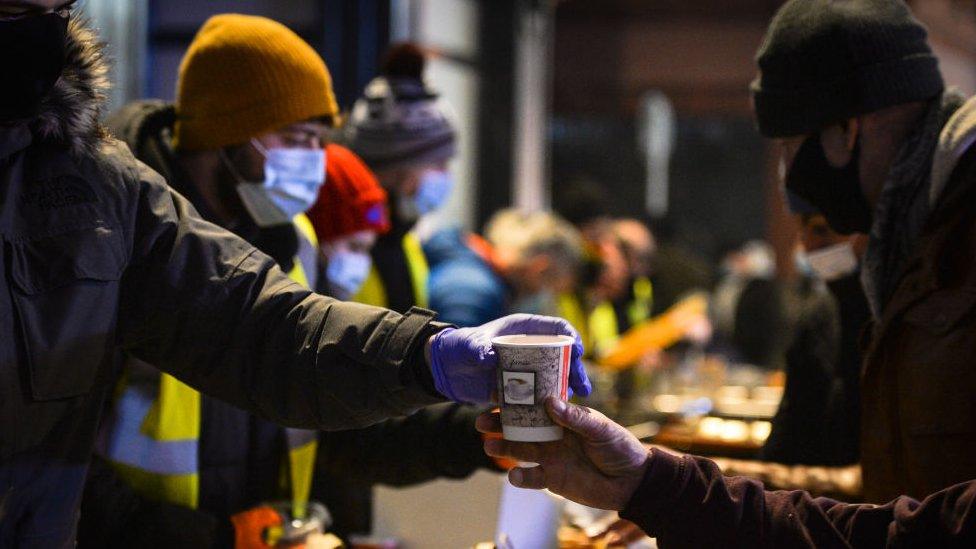
This compares with the world's poorest, for whom economic recovery could take more than a decade. Oxfam estimates that between 200 million and 500 million more people were living in poverty in 2020, reversing the decline in global poverty seen over the last two decades.
"We think that this is... an opportunity to do something radical about building back fairer to think about wealth taxes, to think about corporation taxes, to think about increasing the basic social floor for every citizen," Danny Sriskandarajah, Oxfam's chief executive told the BBC.
With reference to the UK, he said imposing a tax could raise millions.
Aren't the world's wealthiest doing their bit?
Yes - some are. There have been a relatively high number of charitable mega-donations since the pandemic began, with celebrities, sports stars and business leaders responding to the Covid-19 emergency.
In an October report, UBS said 209 billionaires had committed a total equivalent to $7.2bn from March to June 2020 to fight Covid-19.
"They have reacted quickly, in a way that's akin to disaster relief, providing unrestricted grants to allow grantees to decide how best to use funds," the report added.
Last month, MacKenzie Scott, the ex-wife of Jeff Bezos, revealed she had donated more than $4bn to food banks and emergency relief funds in four months.


In a blog post, Ms Scott said she wanted to help Americans who were struggling because of the pandemic.
As of June last year, Mr Bezos was said to have donated $125m to the coronavirus effort.
Twitter co-founder Jack Dorsey announced in April that he was moving $1bn of his assets into a fund to support pandemic relief efforts and other causes. This represents about a quarter of his $3.9bn net worth.
Harry Potter author JK Rowling has donated £1m to help homeless people and those affected by domestic abuse during the pandemic.
Meanwhile, the Bill and Melinda Gates Foundation, which is chaired by Microsoft founder Bill Gates and his wife Melinda, says it has committed a total of $1.75bn to the global Covid-19 response, including for the development and delivery of vaccines and tests.
The Bill and Melinda Gates Foundation is also the third-largest donor to the World Health Organization, external.
Bill Gates says rich countries should do more to make a vaccine available to all
- Published22 June 2021
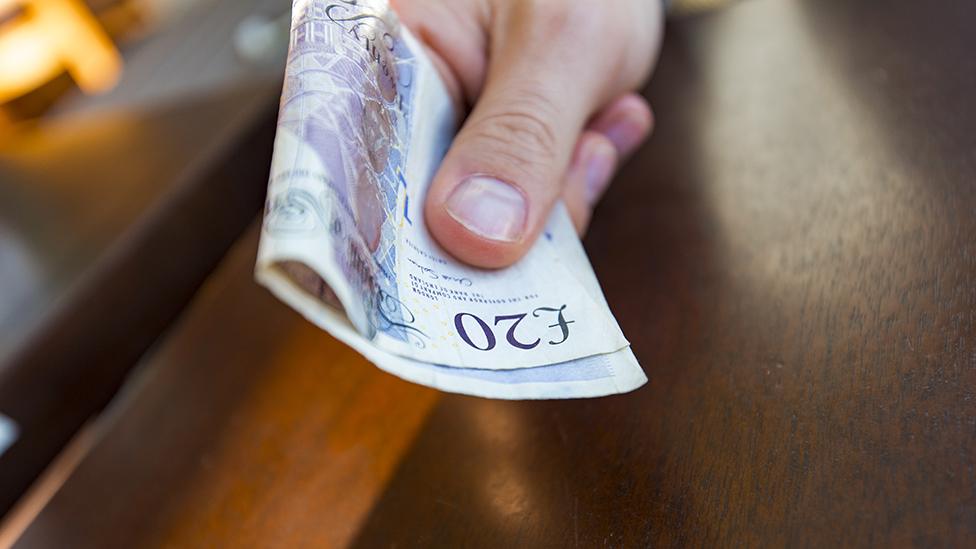
- Published9 December 2020
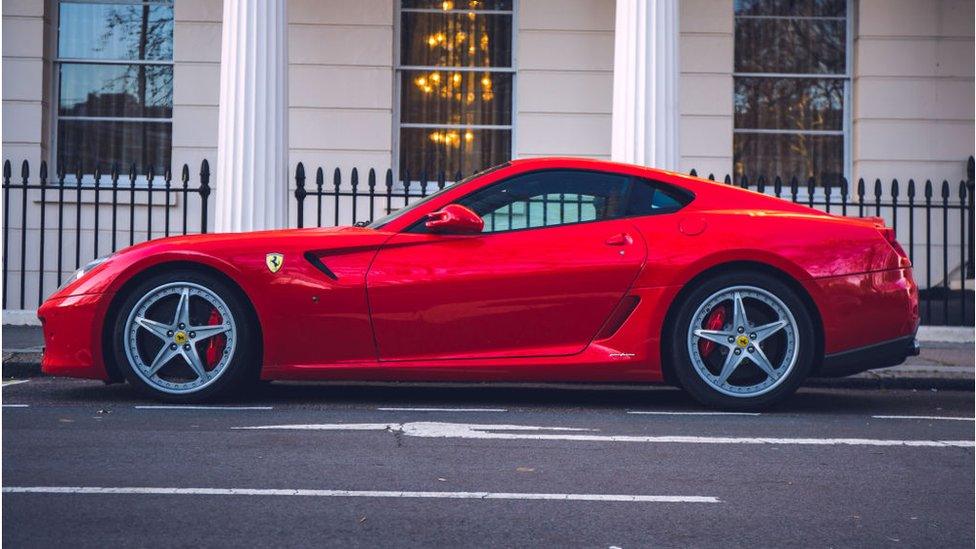
- Published5 December 2020
